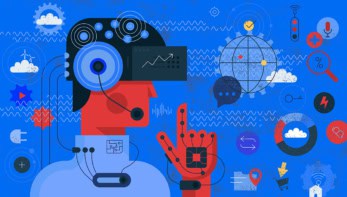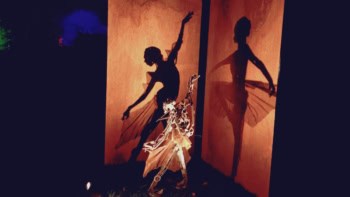All you need to know about the physics of smart speakers and why John Bell’s contributions to quantum physics are still making us think today

“Alexa, play some Christmas music.”
“OK Google, turn on the fairy lights.”
“Hey Siri, how long do you need to cook a turkey?”
This festive season, we’ll undoubtedly be chatting to our smart speakers like they’re another member of the family, and every time, the disembodied response will be almost instantaneous.
It’s all thanks to some amazingly accurate voice-recognition technology based on ultrasensitive acoustic sensors and sophisticated machine-learning algorithms that can interpret our speech, as Pip Knight from the University of Cambridge, UK, explains in the cover feature of the December 2020 edition of Physics World magazine.
And good news for all print readers: as we promised in May, this will be the first issue of Physics World to be sent to readers in an environmentally friendly paper wrapper.
If you’re a member of the Institute of Physics, you can read the whole of Physics World magazine every month via our digital apps for iOS, Android and Web browsers. Let us know what you think about the issue on Twitter, Facebook or by e-mailing us at pwld@ioppublishing.org.
For the record, here’s a run-down of what else is in the issue.
• Heavy elements cause hefty debate – Were heavy elements produced by colliding neutron stars or supernovae? Keith Cooper tunes in to a new dispute
• ‘Delight’ as Biden elected US president – Joe Biden has already begun to initiate a science-driven agenda but faces challenges to unite a divided Congress, as Peter Gwynne reports
• Science must listen to opposing views –As the astronomy community celebrates this year’s Nobel Prize for Physics, Pruthvi Mehta says that the ongoing controversy over the Thirty Meter Telescope continues to stain the field
• Hot time for hard disks – James McKenzie looks at the power of incremental improvement andthe commercial success of magnetic‑recording technology
• Madness in the method – A new book suggests that traditional notions about “the scientific method” are flawed and misleading, as Robert P Crease discovers
• ‘Smart speaker, tell me about your acoustic sensor’ – Smart speakers that can register our everyday commands have become commonplace in homes around the world. While the acoustics sensors inside these devices are far flung from the first microphone, the technology is still evolving, as Pip Knight explains
• Thirty years of ‘against measurement’ Despite its many successes, physicists are still struggling to nail down a coherent interpretation of quantum mechanics, as it best represents “reality”. Jim Baggott explores the arguments first put forth by John Bell three decades ago, and looks at theoretical and experimental evidence accumulated since
Celebrating the Institute of Physics at 100: the November 2020 issue of Physics World is now out
• Following the first stars – Ian Randall reviews First Light: Switching on Stars at the Dawn of Time by Emma Chapman
• A universal theory of matter and mind – Tushna Commissariat reviews Synchronicity: the Epic Quest to Understand the Quantum Nature of Cause and Effect by Paul Halpern
• Ambassador for the Space Age – Andrew Glester reviews Not Necessarily Rocket Science: a Beginner’s Guide to Life in the Space Age by Kellie Gerardo
• Little book, big science – David Appell reviews The Little Book of Cosmology by Lyman Page 2020 Princeton University Press
• On the road less travelled – Postdoc Brooke Russell and graduate student Tamia Williams share their stories of being #BlackInPhysics, from the importance of finding your community and creating a good mentoring environment, to having the determination to succeed
• Ask me Anything – Careers advice from Carol Marsh, deputy head of electronics engineering at aerospace engineering company Leonardo who recently received an OBE for services to diversity and inclusion in electronics engineering.
• Resolving the squoon – Bradford physics teacher Nicholas Porter estimates the physical believability of Julia Donaldson’s planetary satellite in The Smeds and the Smoos




